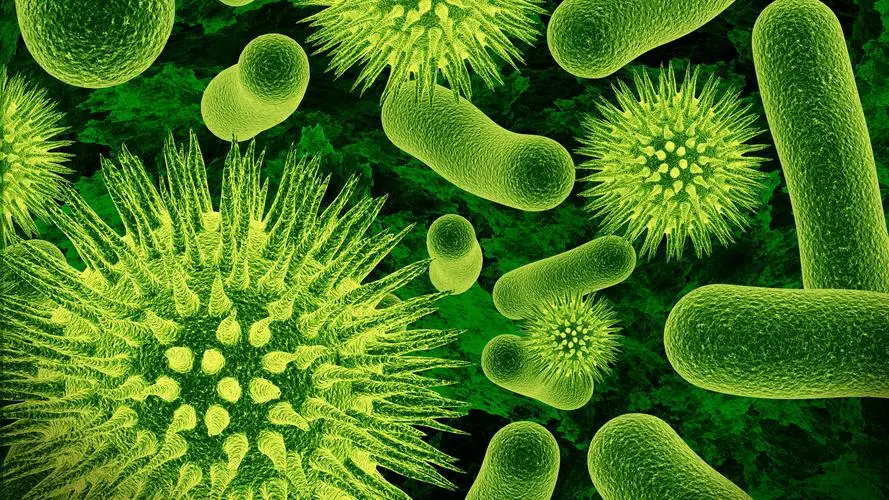Introduction
The human body has its unique ways of signaling potential health issues, and changes in vaginal discharge are no exception. The emergence of green discharge from the vagina can be a cause for concern, yet understanding its various origins is key. In this exploration, we’ll delve into the reasons behind green discharge, exploring symptoms and available treatments.

The Norm: Unraveling Normal Vaginal Discharge
Before we explore the intricacies of green discharge, let’s first grasp the concept of normal vaginal discharge. This natural occurrence is the body’s self-cleaning mechanism, typically manifesting as clear or milky fluid with a mild odor. It aids in maintaining a healthy vaginal environment by expelling bacteria and dead cells.
The Culprits: Identifying Causes of Green Discharge
A. Bacterial Intruders
1. Bacterial Vaginosis (BV)
Green discharge often raises the flag of bacterial vaginosis. This imbalance in vaginal bacteria can tint the discharge green or gray, accompanied by a distinct fishy odor and itching.
2. Sexually Transmitted Intruders (STIs)
Certain STIs, such as trichomoniasis and gonorrhea, can paint the discharge green. Trichomoniasis, caused by a pesky parasite, may turn it into a frothy, greenish-yellow spectacle. Gonorrhea, meanwhile, might splash in with green discharge, pelvic pain, and a fiery discomfort during urination.
B. Yeast’s Twist
Candidiasis
Yeast infections are usually associated with white, cottage cheese-like discharge, but in some scenarios, a greenish tint may sneak in. This can be due to secondary infections or a weakened immune system.
C. Other Mischief-Makers
1. Intrauterine Devices (IUDs)
The use of intrauterine devices (IUDs) for birth control might bring about changes in discharge color, occasionally taking on a greenish hue.
2. Hormonal Rollercoasters
Hormonal fluctuations, as seen in pregnancy or menopause, can contribute to the color shift in vaginal discharge, sometimes steering it towards green.
Symptoms Riding Alongside Green Discharge
Detecting green discharge is just the tip of the iceberg. Paying attention to accompanying symptoms provides a more comprehensive understanding.
A. Telltale Signs
1. Odor Metamorphosis
Changes in the odor of vaginal discharge often accompany infections. BV flaunts a fishy scent, while STIs may bring a more pungent or unpleasant aroma.
2. Itching and Agitation
Infections, whether bacterial or fungal, can provoke itching and discomfort in the vaginal area, serving as signals of underlying issues.
B. Additional Red Flags
1. Pelvic Symphony of Pain
STIs and certain infections can compose a symphony of pelvic pain. If green discharge harmonizes with persistent pain, a healthcare encore is imperative.
2. Fire in the Waterworks
Some infections, especially those affecting the urinary tract, may orchestrate a burning sensation during urination, signaling a deeper concern.
Navigating the Medical Waters
While intermittent changes in discharge color may not set off immediate alarms, persistent or severe symptoms should steer towards medical shores. Timely professional diagnosis and treatment are vital.
A. Diagnosis Routes
1. Physical Voyage
Healthcare providers embark on a physical examination to navigate the external and internal aspects of the vagina, charting the course for identifying visible signs of infection or irregularities.
2. Laboratory Expedition
Various laboratory tests, including vaginal swabs and urine analyses, may be commissioned to unveil the specific cause of green discharge. These tests act as compasses, pinpointing the presence of bacteria, parasites, or other intruders.
Treatment Odyssey
Treatment for green discharge hinges on the underlying cause. It’s essential to recognize that self-prescription and over-the-counter remedies might not be the treasure map to resolution; consulting healthcare professionals ensures a more reliable route.
A. Antibiotic Odyssey
Bacterial Battlegrounds
For bacterial vaginosis or STIs, antibiotics emerge as the champions of the battle. Completing the full course of medication, as directed, ensures the eradication of the invading forces.
B. Antifungal Adventures
Yeast’s Conundrum
Antifungal medications, available in various forms like creams or oral tablets, embark on a quest to vanquish yeast infections. These medications aim to restore the delicate balance of microorganisms in the vaginal landscape.
C. Farewell to Intrauterine Mysteries
If suspicion falls on an IUD as the culprit, its removal might be advised, allowing for the dissipation of any associated changes in discharge.

Preventive Quests
Embarking on preventive measures is the shield against the recurrence of green discharge, involving the maintenance of optimal vaginal health and hygiene.
A. Safe Passage
Navigating the waters of safe sex with barrier methods like condoms helps reduce the risk of STIs, common culprits behind green discharge.
B. Douche-Free Waters
Steering clear of douching maintains the natural equilibrium of vaginal bacteria, preventing disruptions that could lead to infections. Douching should only be ventured upon under the guidance of healthcare professionals.
C. Regular Health Voyages
Regular gynecological check-ups serve as the compass for monitoring reproductive health. Early detection and treatment of abnormalities can stave off the spread of infections.
Conclusion
In conclusion, green discharge from the vagina serves as a unique messenger, signaling potential issues ranging from infections to hormonal fluctuations. While noticing changes in vaginal discharge is an important step, paying attention to accompanying symptoms and seeking timely medical attention are vital for accurate diagnosis and appropriate treatment. Upholding good vaginal health through safe practices and regular check-ups forms the cornerstone in the prevention and management of these concerns.


